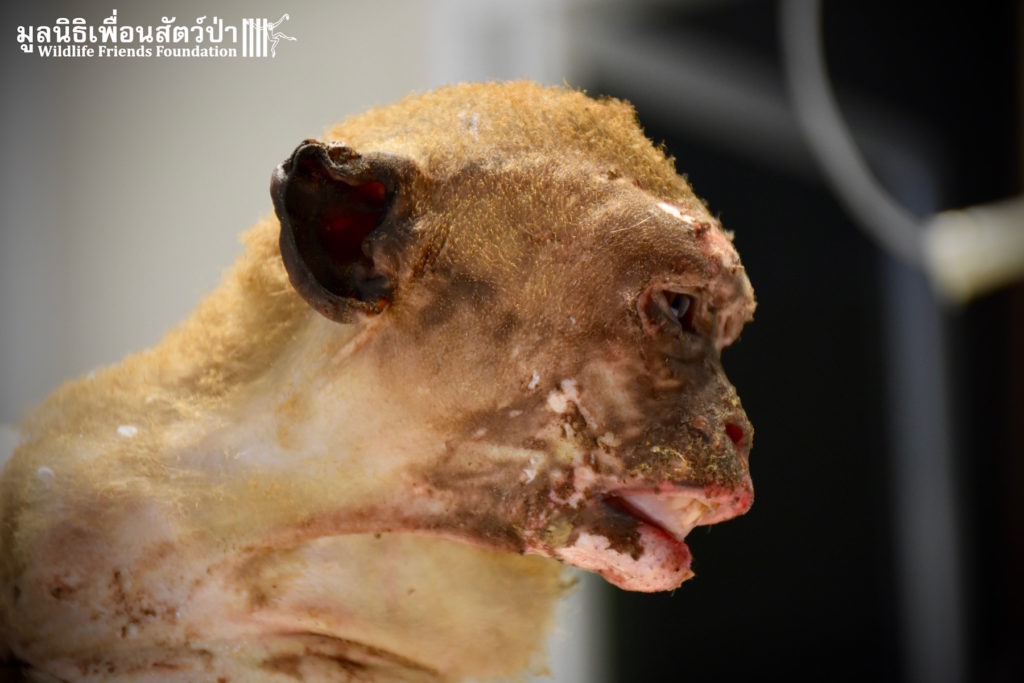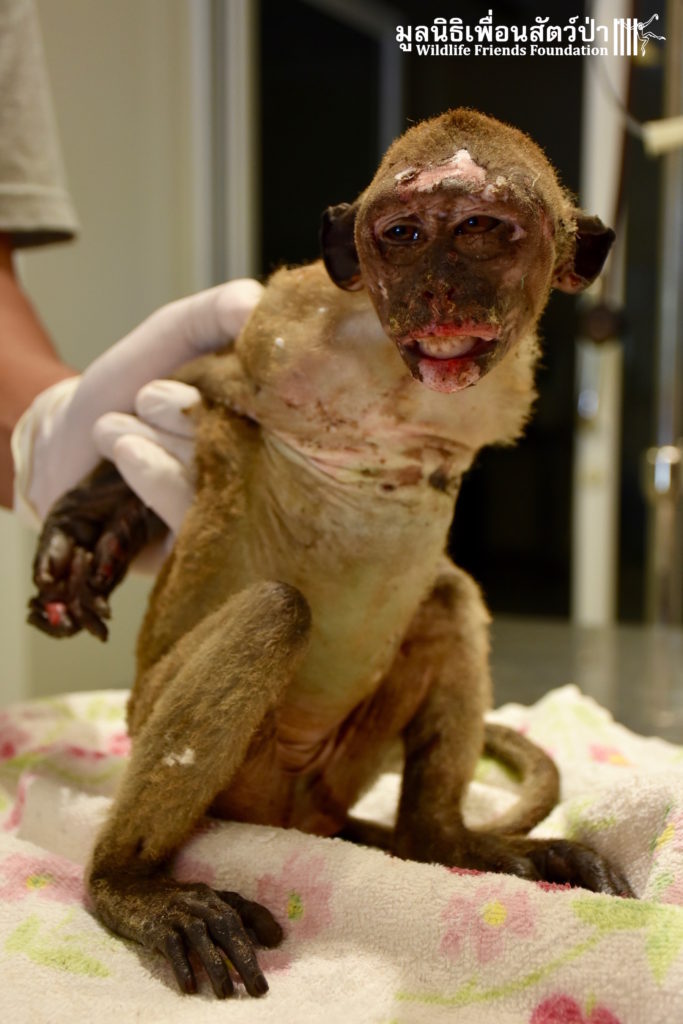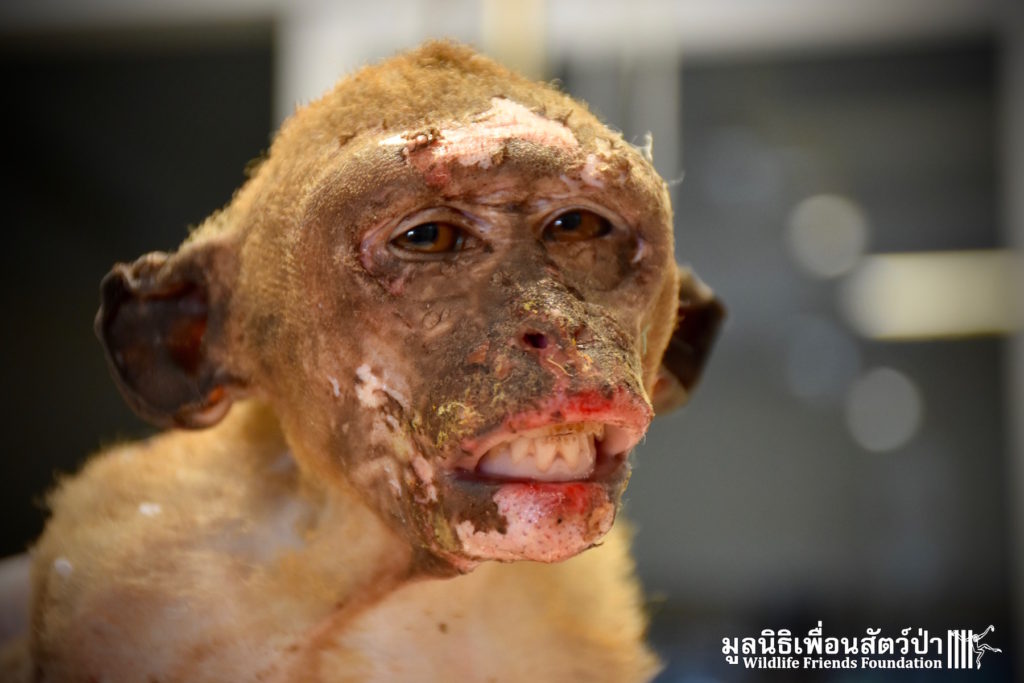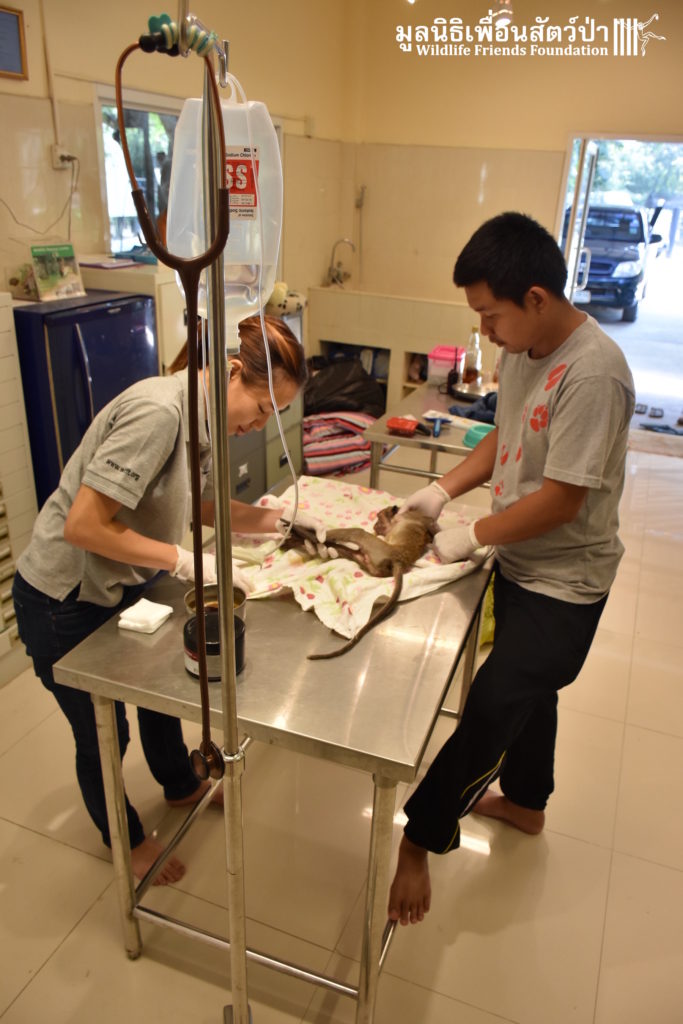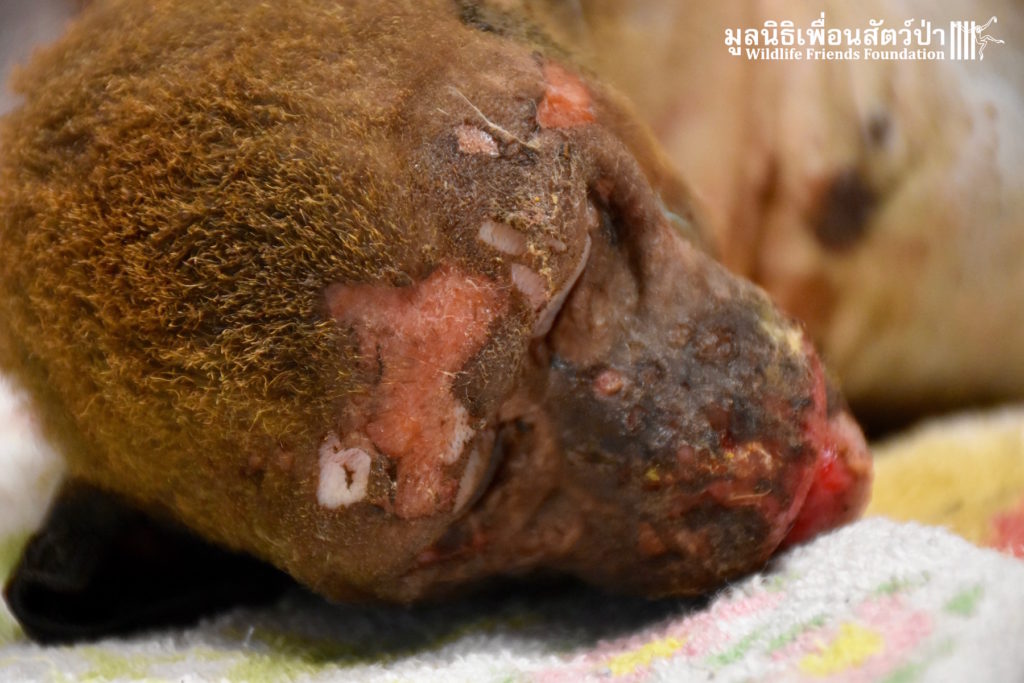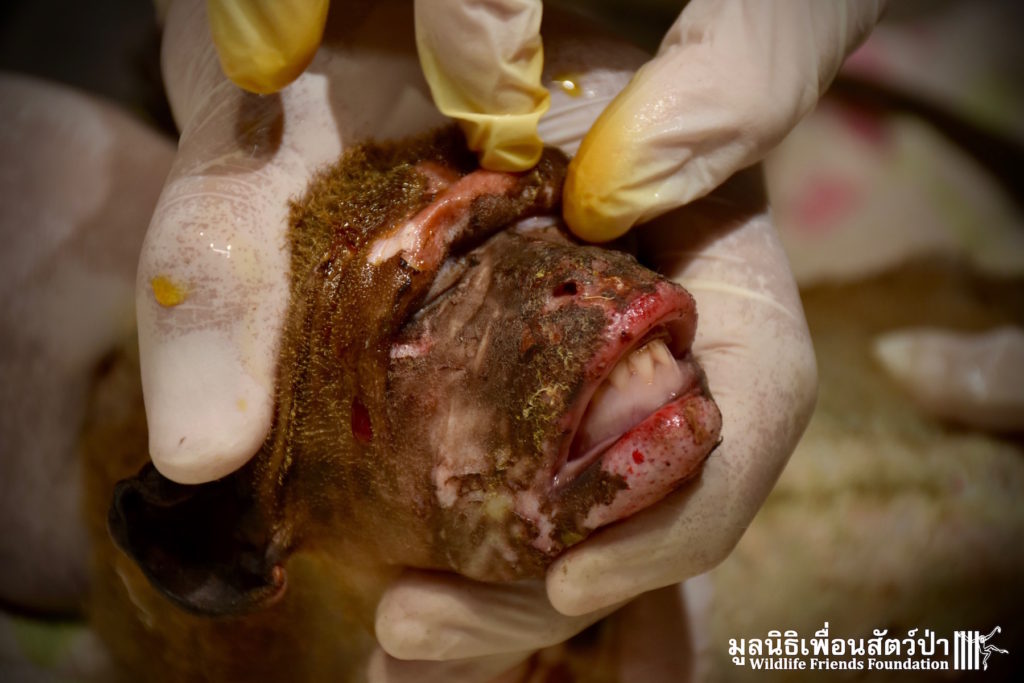A big step forward! An MOU has been signed with the coconut industry and authorities to phase out monkey labour and exploitation in coconut harvesting.
Christmas Day was not so joyful for this little one
(WARNING: Some of you may find the images in this post rather graphic)
On Christmas day morning the WFFT Rescue Team headed out on an urgent rescue of an electrocution victim. We received a telephone call from a veterinary clinic in Phetchaburi that had received a severely injured juvenile long-tailed macaque (Macaca fascicularis) from some concerned locals that had found her on the ground under the power lines she had endured high voltage electric shocks from. Upon arrival to the clinic the WFFT Team were shocked to see the severity of the injuries she had sustained. This little monkey had endured third degree burns covering most of her body, the majority of her body hair was badly burned during the horrific incident. She was rushed straight back to the WFFT Wildlife Hospital for urgent treatment.
Habitat loss and degradation due to the rapid change and increase in anthropogenic land-use, pose the biggest threat to all macaque species. The rapid urbanization of previous macaque habitat has forced these animals to coexist in hazardous human-dominated landscapes. Habituation and adaptation to humans has created truly urban macaque populations throughout many range states. Continual human-macaque conflicts arise within these areas; urban macaques are regularly persecuted as pests.
The long-tailed macaque is listed as Least Concern (LC) by the IUCN Red list of Threatened Species, in view of its wide distribution, presumed large population, tolerance of a broad range of habitats, occurrence in a number of protected areas. Although the long-tailed macaque is the third-most common primate in the world with an extensive range across Southeast Asia, scientists recognize that their range and population status is declining due to habitat loss and degradation and exportation for the biomedical industry. It has been estimated that the global population is 40% lower than that estimated in the 1980s, and that the overall populations are decreasing rapidly.
We have named this little one “Nang Fa” (English: Angel). Little Nang Fa is approximately 2 years old. She has been with us for 2 days now and is improving, but this does not mean she is out of the woods just yet. The internal damage caused by electrocution is often undetectable for days after the incident. Please send some positive energy for this little one. We will keep you posted in her progress.

